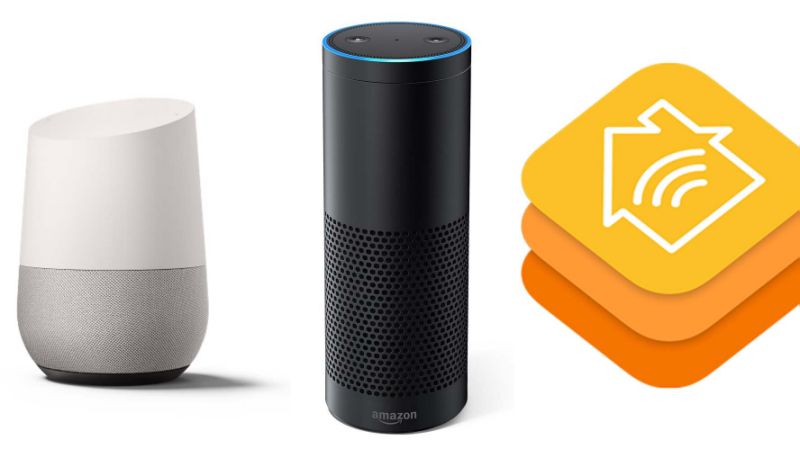By Erik J. Martin
Publishers gave a lot of blood, sweat, and tears getting their content up-to-speed on mobile over the past few years. But that’s a platform primarily geared to eyeballs and fingertips—something they knew a bit about. Now, things are getting audible with speakers such as Amazon’s Alexa-powered Echo and Google Home, featuring Google Assistant. And, according to experts, publishers have to adjust. To do otherwise is to risk being drowned out by the sound waves of competitors and overlooked by consumers eager for immediate gratification audio.
Smart speakers aren’t simple, one-way Bluetooth-?enabled waterproof woofers and tweeters that make nice stocking stuffers for music-loving teenagers. They’re powerful digital assistants, tethered to your home, that use two-way voice computing technology without having to rely on your smartphone or its tinny little speakers. And that makes them game changers for content providers.
“Smart speakers are helping content publishers become truly ubiquitous. Today, they can reach their users only on screen-based devices, and then only when the user is actively engaged with them,” says Beerud Sheth, co-founder and CEO of Gupshup, a bot developer that is partnering with Google to make it easier for companies and developers to interface with Google Assistant. “With voice-based smart speakers and their AI [artificial intelligence] assistants, content publishers can be an ambient presence throughout their user’s environment, and the smart bots they create can also personalize news for the user—delivering only specified content to them.”
Consider what that means to Echo users. In addition to following voice commands to play music, answer questions, purchase merchandise, and manage smart home devices, Echo can stream virtually anything playing on your phone, tablet, or laptop, including radio channels via TuneIn and podcasts from iHeartRadio. It can also read ebooks and audiobooks. Amazon has partnered with many publishers to provide content via Echo and Echo Dot, including The Guardian, CNET, GateHouse Media, and HarperCollins Christian Publishing.
Google Home offers similar features, including the ability to stream Google Play and Spotify and read the latest headlines and stories from content partners such as VentureBeat, The Wall Street Journal, CNN, and BuzzFeed. Most recently, Google teamed up with CNBC and NBC News to feature their news stories and headlines on Google Home.
Smart speakers provide an exciting new distribution mechanism for digital content providers, says Andrew Cross, VP and partner at Walker Sands. “While the format doesn’t lend itself well to deep content yet, it does make the content accessible to a potentially large subset of new consumers,” he says.
Long term, these devices provide an opportunity for content to be delivered to the user at the right point in time, based on predetermined or specified behaviors. “The classic example is waking up in the morning to news headlines. As you walk into a geofenced area, such as your kitchen, your AI assistant reads you your calendar for the day, and as you approach the front door, you get a weather report,” Cross says.
Many believe consumers will increasingly become more dependent on smart speakers and their ilk. “That’s because they will offer news in a much more interactive manner than traditional news sources. The user will be able to skip a story or dive deeper, as required, and even query the assistant for specific topics and further customize and personalize the experience over time,” says Sheth. “Once that’s done, there’s no going back to traditional passive content sources.”
Annie Scott Riley, digital strategy director for Carmichael Lynch Relate, agrees. “We need to adapt our editorial practices to provide the relevant, succinct content that people are looking for. Because these devices are providing consumers increasingly passive ways to access content, we have to be smarter about how we match their queries,” says Riley. And smarter, too, about the way content is written for smart speakers. “People are looking to get news content in a quickly digestible way—short, smart, interactive radio. Content providers may or may not be fit for this radio style, based on their content and user activity,” Riley adds.
Jordan Edelson, founder and CEO of Appetizer Mobile, says partnering with major news players such as NBC and The Guardian legitimizes and gives street cred to these devices and their technology. “Having major news players adopt the technology sends a positive message to other content providers,” Edelson says. “Other large content providers will follow suit.”
But that doesn’t mean there’s ample room for the small-fry publisher inside that smart speaker. “Smaller content providers are definitely fighting an uphill battle when it comes to preference for inclusion on platforms like Echo and Google Home,” says Cross. “It’s still in the early innings of user adoption, so it makes sense that Amazon, Google, and others would seek out partnerships with tier one content providers that bring an audience of their own to the platform and lend credibility out of the gates.”
Edelson believes it may be several years before smaller publishers gain greater entry into the smart speaker market, especially if Amazon and Google strike exclusive deals that limit competition. “Having content that is popular among users, is unique, and provides the greatest utility will have the best shot at gaining entry,” says Edelson. “Thankfully, smart speaker manufacturers are giving access to developers to integrate with their software development kits. …”
Any content provider can climb aboard the Alexa bandwagon now by creating a Flash Briefing skill; a Flash Briefing is customizable audio—often in the form of news updates, interviews, lists, and comedy bits—that Alexa can read aloud or play to users. Major content players currently offering Flash Briefings include the Associated Press, NPR, and the BBC.
Publishers can also interface with Google Home by working with the Actions on Google platform and building Conversation Actions that allow two-way dialogue with users.
“Content providers can get into the game by launching a chatbot for these platforms that’s simple and easy. Once they see users interacting with it, they can refine the end-user experience and add more advanced capabilities,” says Sheth.
Content players will need to keep pace in the voice assistant space or risk getting left behind, Sheth insists. “The past paradigm shifts—from desktop to websites and then to mobile apps—have been highly disruptive to content providers,” he says. “The ones that survived were early adopters who figured out the new medium and transformed their product and business models accordingly. The shift toward intelligent bots is going to be equally disruptive. Content providers will need to learn and adapt.”
Riley, however, isn’t so sure smart speakers represent a major paradigm shift. “Beyond shopping capabilities and seeking partnership opportunities, content providers should wait on investing heavily in adapting for these devices,” she says. Riley believes that the real game changer will eventually be a device that incorporates smart visual projection and motion-sensing solutions. “These audio assistants are a half step in technology, and publishers will need to redo everything in a matter of months when someone hits the market with a visual complement.”
Read the entire article at: http://www.econtentmag.com/Articles/News/News-Feature/How-Echo-Google-Home-and-Other-Voice-Assistants-Can-Change-the-Game-for-Content–Creators-116564.htm






Latest comments